
‘Mission Chinese Food Cookbook’: Tell Them the Truth ‘Mission Chinese Food Cookbook’: Tell Them the Truth
Not all cookbooks would benefit from the Mission treatment, but, perhaps, quite a few memoirs would.
Feb 25, 2016 / Wei Tchou
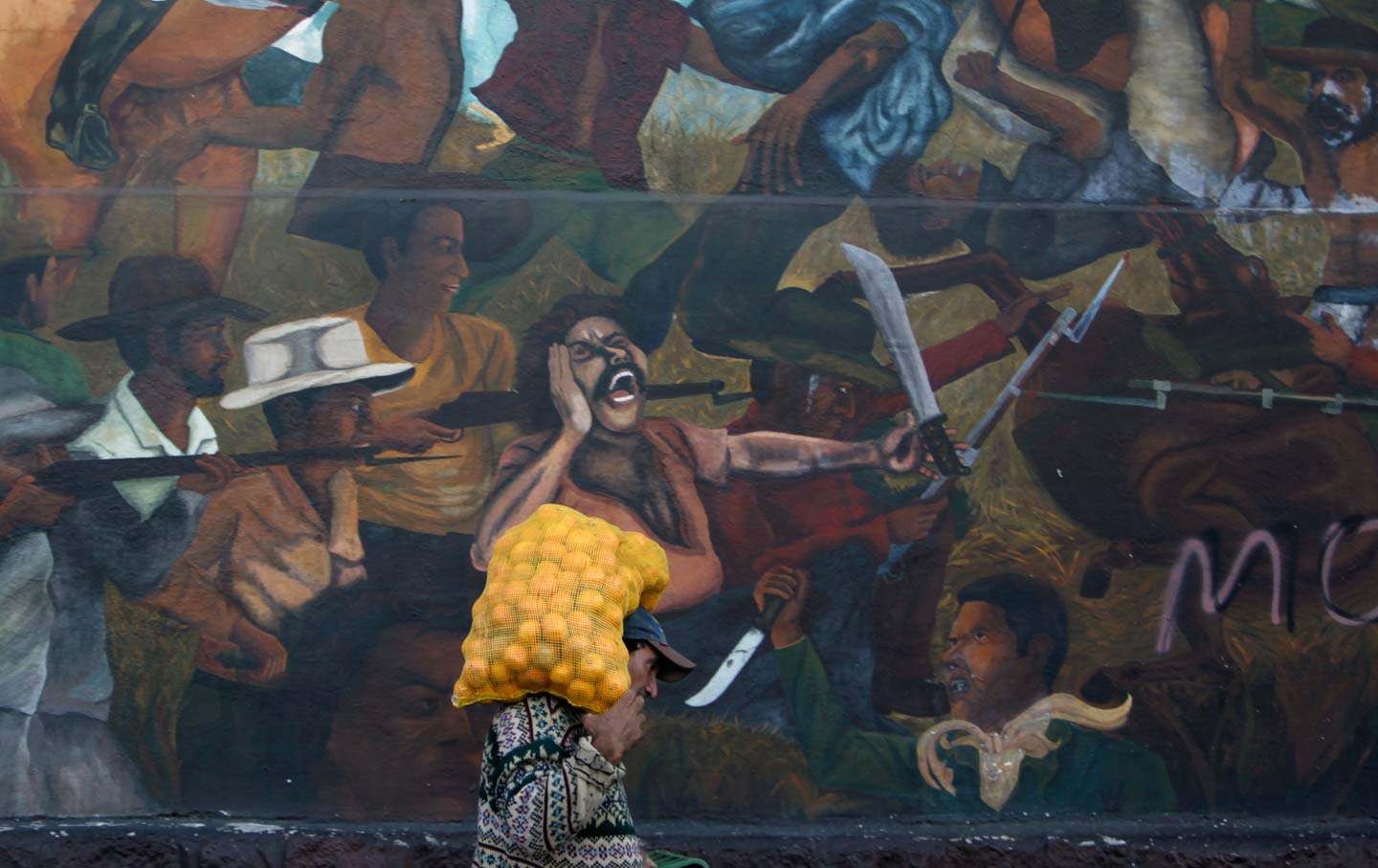
More Than 30 Trade Unionists Have Been Killed in Honduras Since 2009 More Than 30 Trade Unionists Have Been Killed in Honduras Since 2009
Chiquita keeps bananas cheap—and union organizers scared for their lives.
Nov 30, 2015 / Michelle Chen
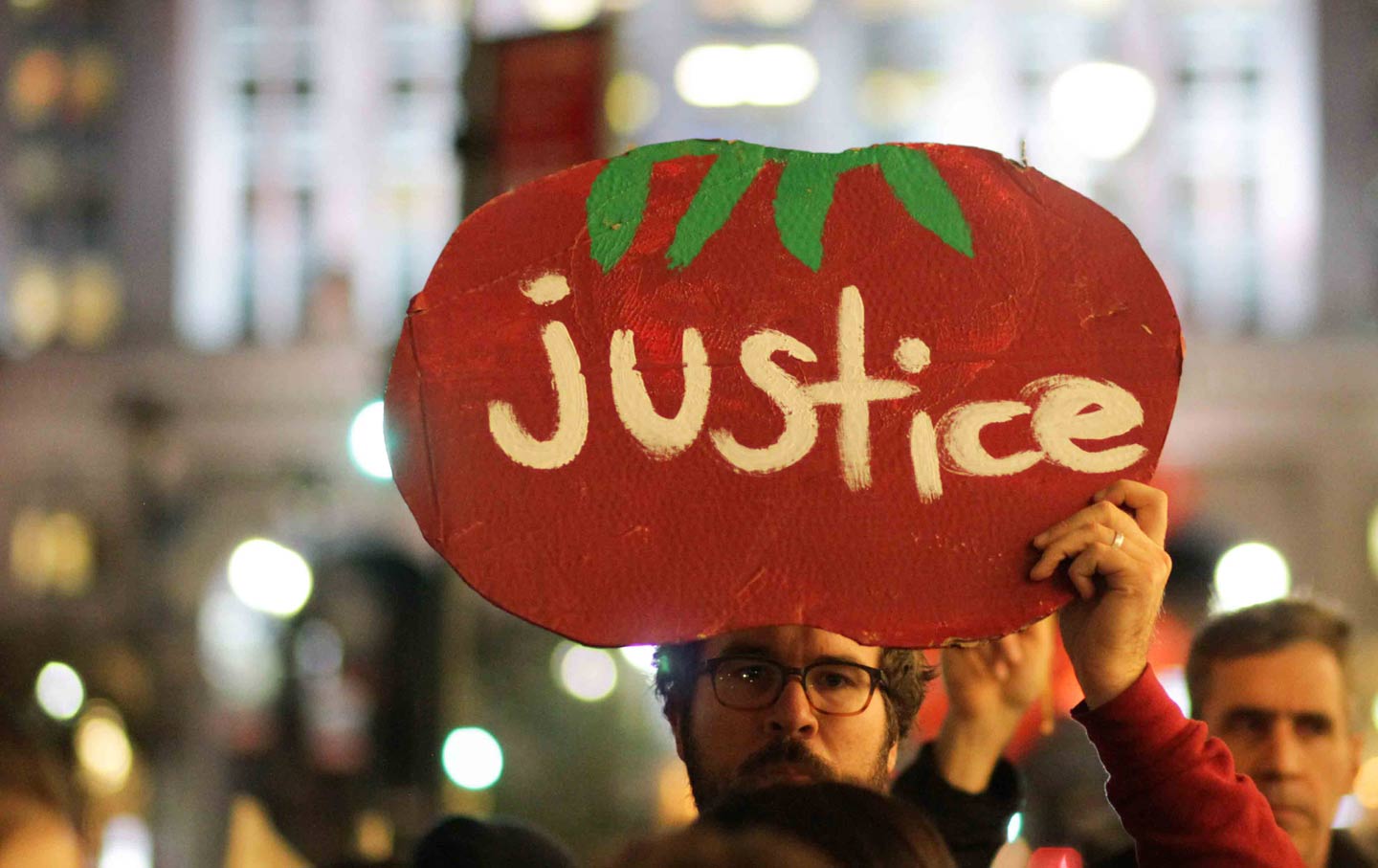
In New York, Farmworkers Rally for 1 Cent of Dignity In New York, Farmworkers Rally for 1 Cent of Dignity
The Coalition of Immokalee Workers has won battles with McDonald’s, Burger King, Subway, Chipotle, and Taco Bell. Is Wendy’s next?
Nov 18, 2015 / Daniel Moattar

One Novel Way to Bring Healthcare to Poor Neighborhoods One Novel Way to Bring Healthcare to Poor Neighborhoods
What if health services moved into places people already go?
Sep 4, 2015 / Sasha Abramsky
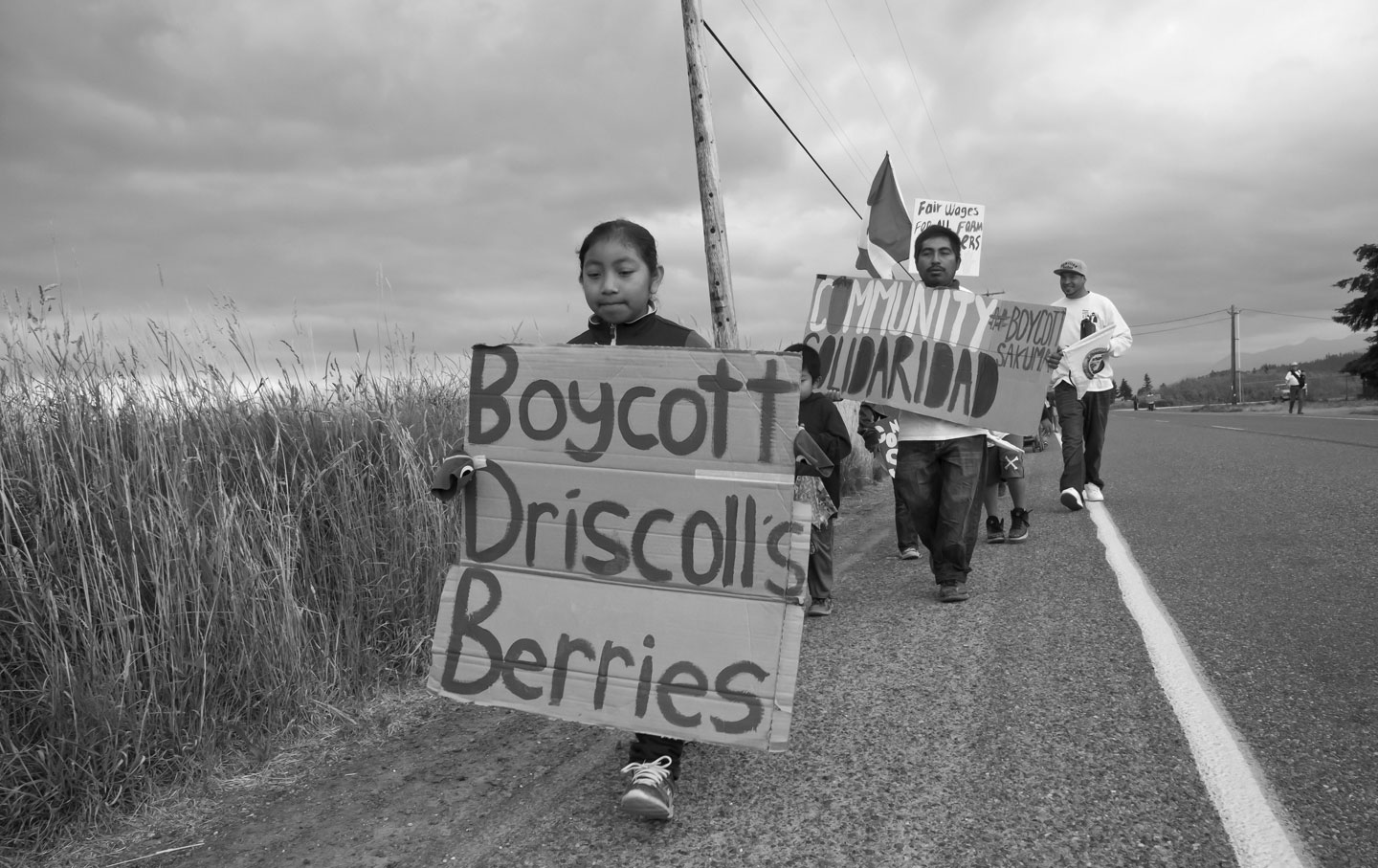
The Pacific Coast Farm-Worker Rebellion The Pacific Coast Farm-Worker Rebellion
From Baja California to Washington State, indigenous farm workers are standing up for their rights.
Aug 28, 2015 / David Bacon
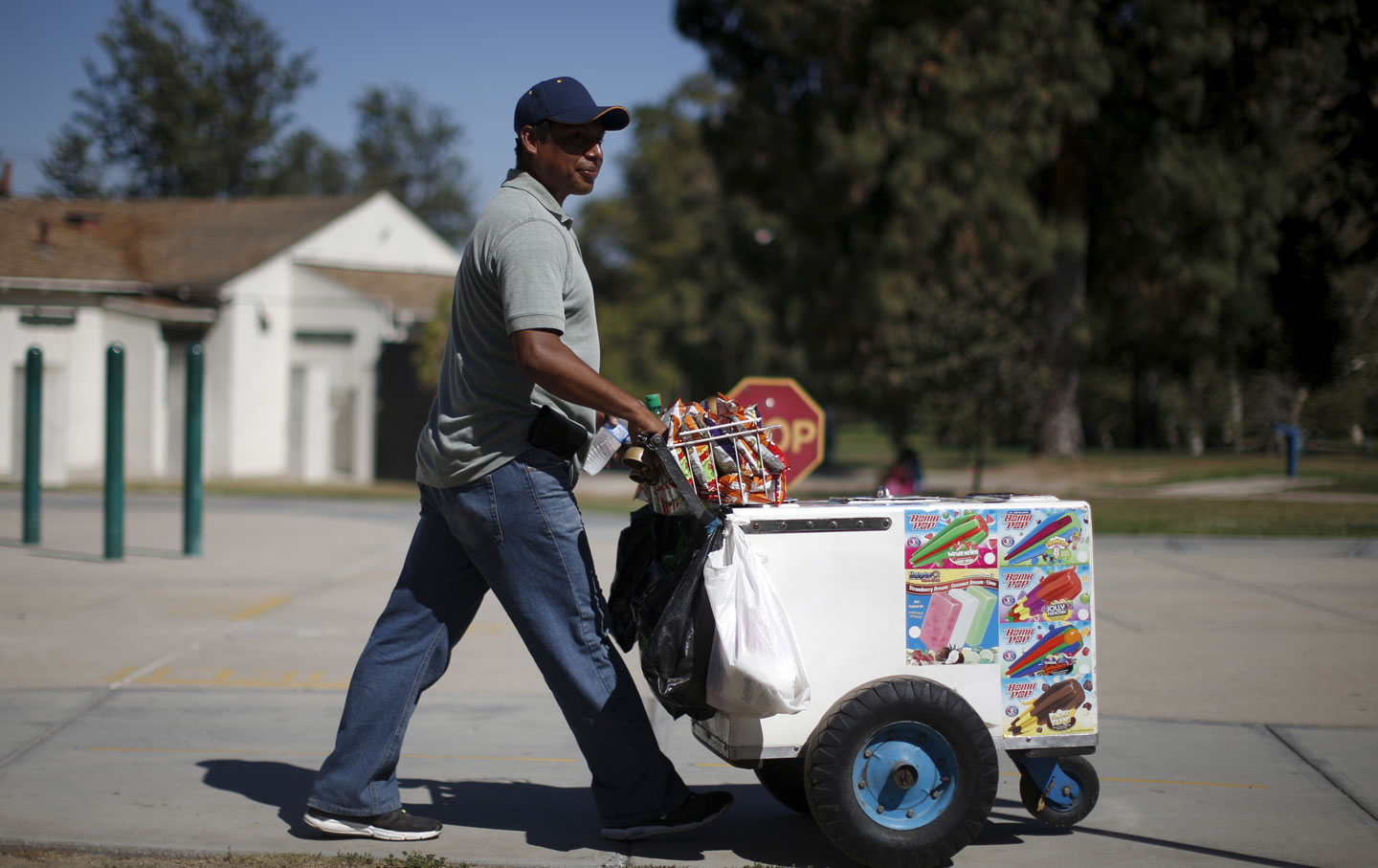
Food Cart Vendors Are Getting Kicked to the Curb Food Cart Vendors Are Getting Kicked to the Curb
Street food vendors square off with big business in a David and Goliath feud.
Jul 13, 2015 / Michelle Chen
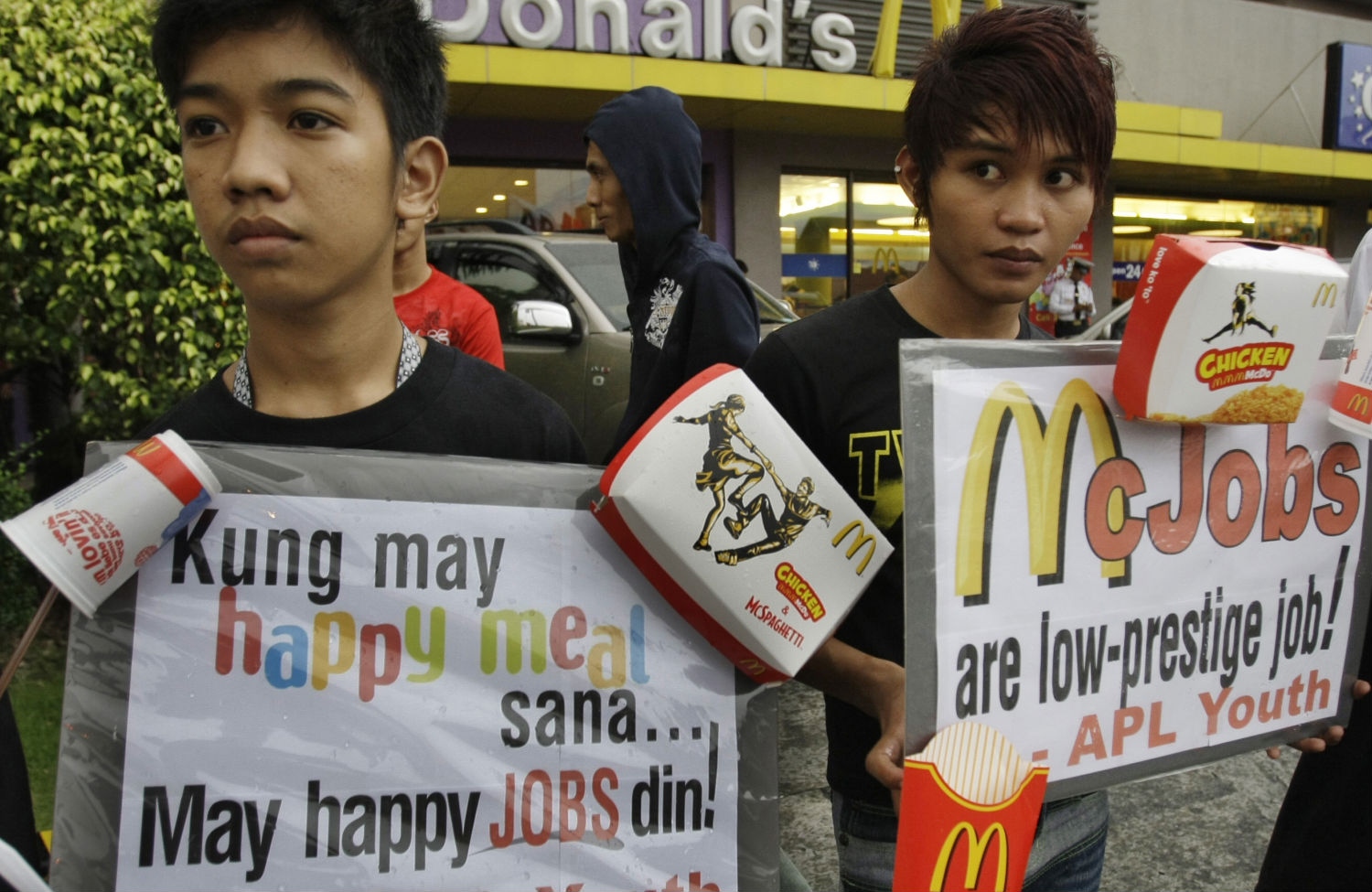
Want a Living Wage? Work at McDonald’s… in Denmark Want a Living Wage? Work at McDonald’s… in Denmark
Can global solidarity between fast-food workers help raise the bar for all of them?
Nov 19, 2014 / Blog / Michelle Chen
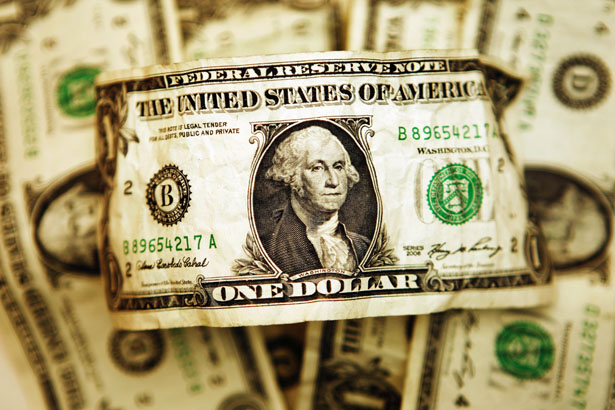
The Score: Does the Minimum Wage Kill Jobs? The Score: Does the Minimum Wage Kill Jobs?
Throw a rock into the punditsphere and you’ll hit someone arguing that minimum-wage increases kill jobs. We shouldn’t boost the wage, these people argue, because companies will hire fewer of the lowest-paid workers—the very workers who are supposed to be helped. Meanwhile, social movements like Fight for 15 demand a higher minimum wage in order to raise the living standards of these workers. To a degree, the relationship between the minimum wage and employment is still debated among economists. When thirty-eight of them were polled last year, they were split as to whether a $9 hourly wage would cost jobs, with about a quarter unable to say one way or another. The debate pits the Congressional Budget Office, which found that a $10.10 wage would reduce employment by 0.3 percent, against economists like David Cooper, who found that a higher minimum wage would support the creation of 85,000 new jobs. So which is it: Does raising the minimum wage boost living standards for workers, or does it kill jobs for those who need them most? Taking stock of all the conflicting research on the topic suggests the former: employment is unlikely to suffer from a higher wage. In 2009, Hristos Doucouliagos and T.D. Stanley published a paper that reviewed sixty-four studies and found that when the studies’ findings were averaged out, the impact of raising the minimum wage on employment was close to zero. Also, the most statistically precise studies were the likeliest to find no impact. Increasing the wage by 10 percent could reduce employment by a mere 0.1 percent. Critics suggest that employers of low-income workers will replace them with machines if their labor becomes more costly. But in the real world, businesses are run by human beings who make a range of choices. Bosses often respond to higher labor costs not by cutting workers, but by requiring workers to be more efficient. They may reduce bonuses for higher-paid employees. They could pass the cost on to customers through higher prices, although a review of academic papers found that a 10 percent wage increase raised prices by no more than 0.4 percent. Most important, employers are likely to find that a higher wage reduces costly job turnover among trained workers. Higher wages also put more money into workers’ pockets—to the tune of some $30 billion—which would then be spent at these businesses. Real-world evidence is reassuring. In 2010, three economists looked at 1,381 counties over sixteen years, finding that minimum-wage hikes had no effect on employment. Other economists looked at every state-level minimum-wage increase over twenty-five years at times when unemployment was already high and found no evidence of an effect on job creation. Yet another group looked at the effect of state-level increases on teenagers—canaries in the coal mine of low-skilled employment—and found zero impact on their jobs. Even this year, the thirteen states that raised their minimum wages on January 1 have experienced higher employment growth than those that didn’t. Washington, the state that has boasted the highest minimum wage for fifteen years, had a job-growth rate 0.3 percentage points above the national rate. It’s impossible to draw a clear line of causation from a higher minimum wage to job growth, but the hikes clearly did not torpedo local economies. Across the board, there’s little reason to think that a higher wage would decimate job growth and good reason to think it could give the economy—and workers—a boost. Bryce Covert Myth: The minimum wage is a living wage. Reality: One full-time minimum-wage job used to be able to keep a family of three above the poverty line. Now it can’t keep a single parent above the poverty line. Myth: Mostly teenagers in short-term jobs make the minimum wage. Reality: Nearly 90 percent of the workers who would be affected by a minimum-wage hike are older than 20, and 28 percent of them are parents. Myth: Minimum-wage jobs like fast food are just entry points to better-paid careers. Reality: In the minimum-wage fast-food industry, there are far fewer managerial positions to move into than in other industries, and few franchise ownership opportunities. half-full: Ten states have passed minimum-wage increases this year, five above $10 an hour. half-empty: Congressional Republicans have blocked a federal minimum-wage increase three times over the past three years despite supporting one under President George W. Bush.
Oct 8, 2014 / Editorial / Mike Konczal and Bryce Covert
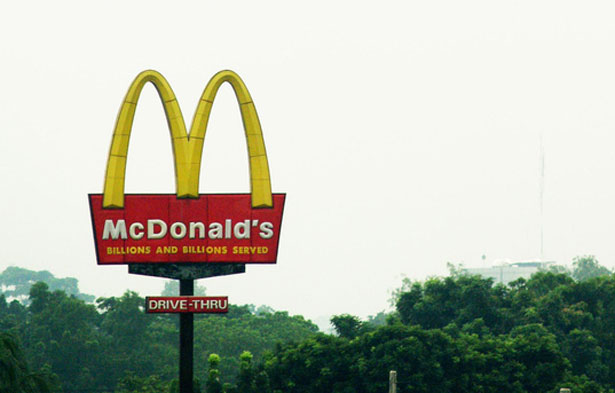
This Ruling Just Gave Workers a Big Boost in Their Fight Against McDonald’s This Ruling Just Gave Workers a Big Boost in Their Fight Against McDonald’s
The fast-food giant must now admit that it’s responsible for the people it employs.
Aug 1, 2014 / Blog / Michelle Chen
